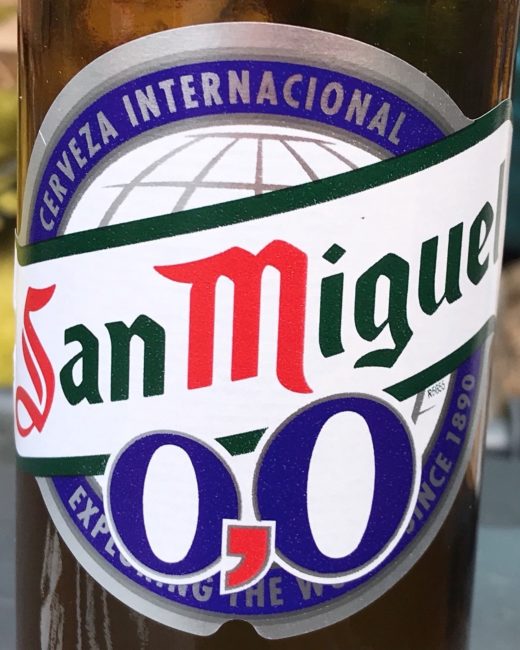On the wagon
I confess that I have always had difficulty with understanding people. My instinct is to expect logic and rational behavior. When I was younger, I was troubled by the fact that many [perhaps most!] people did not think like me. Nowadays, I recognize that the diversity in way people think and act is a strength of Human society, even if I still find it challenging. A few years ago, I took some classes in Emotional Intelligence, which did give me some insights.
So, I have accepted that understanding other people is hard and regard it as a challenge instead of a problem. However, understanding oneself is even harder …
I have always been puzzled by my own behavior and motivations. On the surface it is easy: I wish to be logical and rational and behave according to those rules. Except when I do not. There are times when I have difficulty developing enthusiasm for doing something, even if it is the logical thing to spend my time on. I just conclude that this is tiredness coupled with innate laziness. The things that concern me more are habits and addictions, as these lead me to do things that are quite illogical.
If you think that, by reading on from here, you will learn some deep dark secrets about my inner life, you are likely to be disappointed. Sorry.
What is the difference between a habit and an addiction? I am sure that there are precise definitions of the words, but, to me, an addiction is really a habit that is hard [or maybe very hard or even impossible] to break. Most of the time, we can decide that a habit can be discontinued. At the other extreme, a physiological addiction to something means that giving up whatever it is causes the individual great pain or illness or possibly death.
I have been known to refer to myself as a “chocaholic”. To the best of my knowledge, a physiological addiction to chocolate is very unlikely. It is just a habit. After lunch, I have a cup of tea [I’m English!] and that is when I like to have some chocolate and generally have some to hand. The result is that I eat more of the stuff than I think is good for me. But I am not overweight or diabetic, so I am not losing any sleep over it. The odd thing is that, if I am away from home on vacation or for work, the urge to have chocolate subsides. Clearly this is a habit that is integral to my routine when I am at home. I guess that a change of routine might enable me to shake it.
Alcohol is a bigger issue. Although most people can enjoy a drink, but choose to not have alcohol sometimes, others do not have the choice. An alcoholic is physiologically addicted to the stuff and becomes unwell when it is withheld. Having seen the effects of alcoholism first hand, I take the matter very seriously.
I like to drink wine and beer. I am not particularly interested in stronger drinks and cocktails mostly have too many unknowns for my liking. At the back of my mind I do ponder “who is in control?” With that in mind, from time to time, I step away from alcohol just to check. Over the last couple of years, I have been in the habit of nominating a couple of “dry” days each week and I will admit to commonly feeling that something is missing on those days. Where does that feeling come from? I can think of 3 possibilities:
- I need a refreshing drink
- It is a habit
- I need the alcohol
Support for (1) is that I do not like a lot of non-alcoholic drinks. I am OK with water, tea, coffee and fruit juices, but all the sugary [or, worse, artificially sweetened] fizzy drinks do not appeal at all. I think that (2) is clearly a factor, as, on some occasions, I have felt like a beer, but found that a cup of tea is a satisfactory substitute. It is (3) that needs to be tested.
Although I have not done this for a few years, giving up alcohol entirely for a month or so seems as good a test as any. On past occasions, when I have been abstaining, it has only been in certain social situations when I have felt an urge to conform. However, I have never failed to complete a dry month. Recently, I decided it was time to try it again and I started this week. This will be a 4-week period up until Monday 20 August. In choosing this specific time frame, I looked at the calendar to choose a period with a minimum number of social engagements where having a drink would be particularly attractive. As things stand, there is just one event and I have declared that as an exception and will allow myself to imbibe during that specific event. I do not plan to introduce any more exceptions.
I thought that I would sample some non-alcoholic beers this time. I figured that they are no more “cheating” than drinking decaffeinated coffee and would provide everything except the alcohol, which would be a valid test. It seems that a wide range of products are available nowadays, so I can distract myself with research. I have a very slight reservation. Many years ago [maybe 30!] I tried this; I gave up alcohol, but carried on life as normal. I went to the pub with my friends one evening and drank about 6 bottles of zero alcohol beer. At the end of the evening I was, of course, stone cold sober. However, the following morning I had a hangover, which was not normally the case after having the real stuff. I am hoping that the modern products are less toxic. ?


